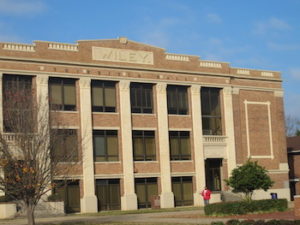
This date celebrates the founding of Wiley College in Marshall, TX, in 1873. It is one of over 100 American Historically Black Colleges and Universities (HBCUs).
The college was founded in 1873 by the Methodist Episcopal Church and chartered by the Freedman's Aid Society in 1882. Its mission then was to educate the "newly freedmen" and prepare them for a new life. The college is currently affiliated with the United Methodist Church. Increasingly, students of other races, as well as international students, find Wiley College to be an appealing place to obtain a college education.
Wiley College's campus comprises 14 permanent structures for teaching, learning, research, and residential housing for students. Wiley College, in Harrison County, on 63 acres of land between Dallas to the west and Shreveport to the east, is one of three institutions of higher learning found in Marshall. This location offers access to the cities and a perfect environment for students' learning and intellectual growth away from the hustle and bustle of urban life. Wiley College initially focused on training teachers for careers at black elementary and secondary schools.
Since then, it has grown from a vocational college to an institution awarding associate's and bachelor's degrees in 21 areas, including English, biology, business, computer science, and social sciences. Wiley is also recognized for providing higher education opportunities to non-traditional students through its management institute program. Wiley College is the first school in East Texas to issue laptop computers to its students and faculty, thus preparing its students for the marketplace.
The school has one of the best student-faculty ratios in the nation. Dr. Haywood Strickland was elected the 16th president of Wiley College on September 12, 2000. Notable alumni include James Farmer Jr. and Henry McBay.
Black American Colleges and Universities:
Profiles of Two-Year, Four-Year, & Professional Schools
by Levin Hill, Pub., Gale Group, 1994
ISBN: 0-02-864984-2